Intro
Discover the 5 key liver function tests, including ALT, AST, and bilirubin, to diagnose liver health issues, liver damage, and liver disease, ensuring timely medical intervention and effective treatment.
The liver is a vital organ that plays a crucial role in maintaining our overall health. It performs a wide range of functions, including detoxification, protein synthesis, and the production of biochemicals necessary for digestion. Given its importance, it's essential to monitor liver health through various tests. In this article, we will delve into the world of liver function tests, exploring their significance, types, and what they reveal about our liver health.
Liver function tests are a group of tests used to assess the liver's condition and detect any potential damage or disease. These tests are crucial in diagnosing and monitoring liver conditions, such as hepatitis, cirrhosis, and liver cancer. By analyzing the results of these tests, healthcare professionals can determine the extent of liver damage and develop an effective treatment plan. The importance of liver function tests cannot be overstated, as they enable early detection and intervention, which can significantly improve treatment outcomes.
The liver is a complex organ, and its functions are multifaceted. It filters toxins from the blood, stores glycogen, and produces bile, among other functions. Liver function tests are designed to evaluate the liver's ability to perform these functions. There are several types of liver function tests, each measuring different aspects of liver health. Some tests assess the levels of liver enzymes, while others evaluate the liver's ability to produce proteins and remove toxins. By combining the results of these tests, healthcare professionals can gain a comprehensive understanding of liver health and detect any potential problems.
Liver Function Test Types
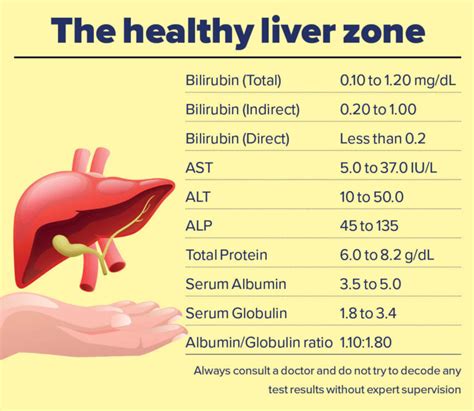
There are several types of liver function tests, including:
- Alanine transaminase (ALT) test: This test measures the level of ALT, an enzyme found primarily in the liver. Elevated ALT levels can indicate liver damage or disease.
- Aspartate transaminase (AST) test: This test measures the level of AST, another enzyme found in the liver. Like ALT, elevated AST levels can indicate liver damage or disease.
- Alkaline phosphatase (ALP) test: This test measures the level of ALP, an enzyme found in the liver and bones. Elevated ALP levels can indicate liver damage, bone disease, or other conditions.
- Gamma-glutamyl transferase (GGT) test: This test measures the level of GGT, an enzyme found in the liver. Elevated GGT levels can indicate liver damage or disease.
- Bilirubin test: This test measures the level of bilirubin, a pigment produced during the breakdown of red blood cells. Elevated bilirubin levels can indicate liver damage or disease.
Interpreting Liver Function Test Results
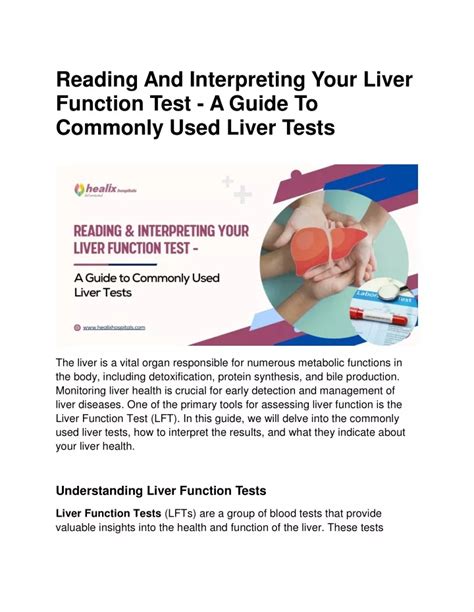
Interpreting liver function test results requires a thorough understanding of the different tests and their significance. The results of these tests are typically evaluated in conjunction with other diagnostic tools, such as imaging studies and physical exams. By analyzing the results of liver function tests, healthcare professionals can:
- Detect liver damage or disease
- Monitor the progression of liver disease
- Evaluate the effectiveness of treatment
- Identify potential complications
Understanding Liver Enzyme Levels
Liver enzyme levels are a critical component of liver function tests. Elevated enzyme levels can indicate liver damage or disease. The most common liver enzymes measured in liver function tests are ALT, AST, and ALP. Each of these enzymes has a unique significance and can provide valuable insights into liver health.Liver Function Test Preparation
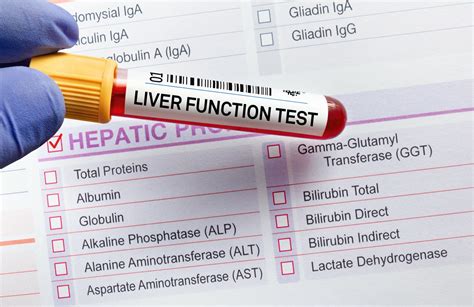
Preparing for liver function tests is essential to ensure accurate results. The preparation process typically involves:
- Fasting: Patients may be required to fast for a certain period before the test to ensure accurate results.
- Avoiding certain medications: Certain medications, such as blood thinners, may need to be avoided before the test.
- Avoiding alcohol: Alcohol consumption can affect liver function test results, so patients may be advised to avoid alcohol for a certain period before the test.
Common Liver Function Test Risks and Complications
While liver function tests are generally safe, there are some potential risks and complications to be aware of. These include: * Bleeding: Bleeding can occur at the needle site, especially in patients taking blood thinners. * Infection: As with any invasive procedure, there is a risk of infection with liver function tests. * Allergic reactions: Some patients may experience allergic reactions to the test materials or medications used during the test.Liver Function Test Results and Diagnosis
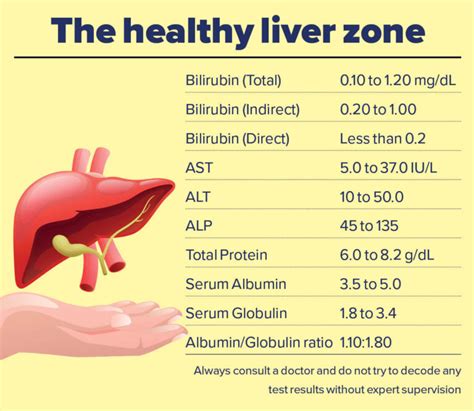
The results of liver function tests can provide valuable insights into liver health and help diagnose potential liver conditions. By analyzing the results of these tests, healthcare professionals can:
- Diagnose liver disease: Elevated liver enzyme levels and other abnormalities can indicate liver disease.
- Monitor disease progression: Liver function tests can be used to monitor the progression of liver disease and evaluate the effectiveness of treatment.
- Identify potential complications: Liver function tests can help identify potential complications, such as liver failure or liver cancer.
Understanding Liver Disease Diagnosis
Diagnosing liver disease requires a comprehensive approach that includes liver function tests, imaging studies, and physical exams. The diagnosis process typically involves: * Evaluating medical history: Healthcare professionals will evaluate the patient's medical history to identify potential risk factors for liver disease. * Conducting physical exams: Physical exams can help identify signs of liver disease, such as jaundice or abdominal tenderness. * Analyzing test results: The results of liver function tests and imaging studies are analyzed to confirm the diagnosis and evaluate the extent of liver damage.Liver Function Test Follow-Up and Monitoring
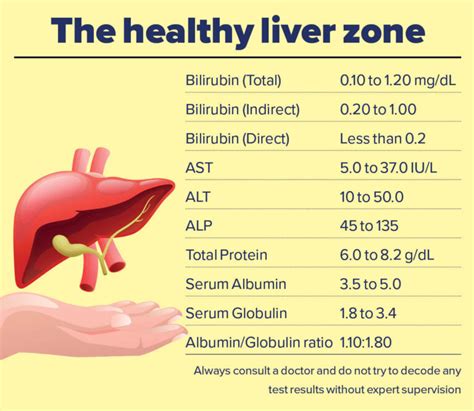
Follow-up and monitoring are essential components of liver function testing. After the initial diagnosis, patients may require regular follow-up tests to:
- Monitor disease progression: Regular liver function tests can help monitor the progression of liver disease and evaluate the effectiveness of treatment.
- Adjust treatment plans: The results of follow-up tests can help healthcare professionals adjust treatment plans to ensure optimal outcomes.
- Identify potential complications: Regular monitoring can help identify potential complications, such as liver failure or liver cancer.
Importance of Regular Monitoring
Regular monitoring is crucial for patients with liver disease. By regularly evaluating liver function test results, healthcare professionals can: * Detect potential complications early * Adjust treatment plans to optimize outcomes * Improve patient outcomes and quality of lifeLiver Function Test Benefits and Limitations
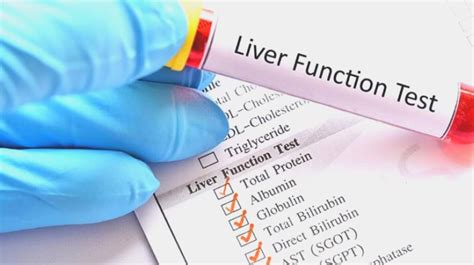
Liver function tests offer several benefits, including:
- Early detection of liver disease
- Monitoring of disease progression
- Evaluation of treatment effectiveness However, there are also some limitations to consider:
- False positives: Liver function tests can produce false positive results, which can lead to unnecessary anxiety and further testing.
- False negatives: Conversely, liver function tests can also produce false negative results, which can delay diagnosis and treatment.
Understanding the Limitations of Liver Function Tests
While liver function tests are valuable diagnostic tools, they are not perfect. It's essential to understand the limitations of these tests to ensure accurate diagnosis and treatment. By recognizing the potential for false positives and false negatives, healthcare professionals can take a more comprehensive approach to diagnosis and treatment.What are liver function tests used for?
+Liver function tests are used to assess liver health, detect liver damage or disease, and monitor the progression of liver disease.
What do liver function test results indicate?
+Liver function test results can indicate liver damage or disease, monitor disease progression, and evaluate the effectiveness of treatment.
How often should I get liver function tests?
+The frequency of liver function tests depends on individual circumstances, such as the presence of liver disease or risk factors for liver disease. Healthcare professionals will determine the best testing schedule for each patient.
In conclusion, liver function tests are essential diagnostic tools that provide valuable insights into liver health. By understanding the different types of liver function tests, their significance, and how to interpret the results, patients can take a proactive approach to maintaining their liver health. If you have concerns about your liver health or have questions about liver function tests, consult with a healthcare professional for personalized guidance and care. Share this article with others to raise awareness about the importance of liver health and the role of liver function tests in maintaining overall well-being.
